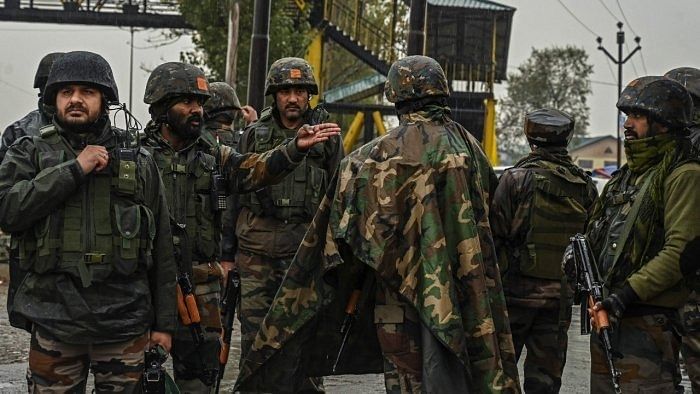
The incidents of December 4-5, leading to the killing of 14 civilians by the armed forces in Nagaland’s Mon have resurrected the debate on the Armed Forces (Special Powers) Act, 1958 (AFSPA). The roots of AFSPA can be traced back to the Quit India movement launched by Mahatma Gandhi in 1942. Later on, the origin and development of AFSPA is linked to the situations that arose during Partition in certain parts of the country, especially in Bengal, Assam, East Punjab, Delhi and the United Provinces. The Government of India issued ordinances to deal with the internal disturbances in these areas and subsequently the ordinances were replaced by the Armed Forces (Special Powers) Act, 1958. Initially, AFSPA was made applicable to Assam and Manipur states and later extended to Arunachal Pradesh, Meghalaya, Mizoram, and Nagaland after the formation of these states.
In this backdrop, it is imperative to understand the rising demand for the repeal of AFSPA and its actual implications on peace and order in the North-East states. The ongoing discourse has made the following arguments: (i) completely scrap AFSPA, given its colonial roots and human rights violations; (ii) amend AFSPA to make it more humane; (iii) retain AFSPA as a security instrument. The first school of thought is broadly based on the liberal tradition arguing for human rights and individual civil liberties whereas the second argument emanates largely on the basis of judicial pronouncements and the various commissions and committee recommendations. The third argument is situated in the policies of national security.
Also read: Centre declares entire Nagaland 'disturbed area' as demand for AFSPA withdrawal continues
On AFSPA, India’s first Defence Minister Sardar Baldev Singh stated in Parliament, “We have no intention at all to extend the period beyond one year. Some honourable members may have a feeling that perhaps, we will go on extending it beyond one year or even later. I can assure the house that we have absolutely no such desire and it will be extended only if the communal situation does not improve” in December 1947. Union Home Minister Amit Shah stated that the killings are “a case of mistaken identity” and that the “Government of India sincerely regrets this unfortunate incident in Nagaland and expresses its deepest condolences to the families of those who have lost their lives.”
The take away lesson from this statement is that the Union government is unwilling to either scrap or amend AFSPA. Successive governments have since 1950 continued to use AFSPA for reasons of electoral politics and politics of insurgency. The end-result of this is that democracy has become the casualty, especially seen from the perspective of the concept of “nation-state” in the North-East states. The fragility of “nation-state” in a diversified and multi-ethnic and multi-cultural society in North-East states is essentially a political problem, and the solutions to the conflicts must evolve from the political domain.
Seen in this context, AFSPA is a democratic aberration as it deviates from the established procedures of rule of law and other principles of democratic governance, especially transparency and accountability. AFSPA denies the citizen’s right and thereby violates Article 21 -- right to life -- of the Constitution. The national security discourse has engulfed the citizen’s constitutional rights, thereby jeopardising the very people’s security for which special laws such as AFSPA were enacted. The porous nature of national borders, the geo-politics of India with its troubled neighbours, and political economy factors are responsible for the retention and continuation of AFSPA by successive ruling dispensations.
The incident of Mon district of Nagaland has larger implications on the ongoing peace talks between the Indian State and the National Socialist Council of Nagalim (NSCN-IM). The question of special privileges to the army under AFSPA is under serious scrutiny as it violates the rule of law, though the Supreme Court has upheld its constitutionality while instituting some checks and balances in the judgement of Extra Judicial Execution Victim Families Association (EEVFAM) Vs. Union of India (2016).
AFSPA violates the right to life and the right to equality before the law (Article 14) of the Indian Constitution as well as the right not to be subjected to cruel, inhuman or degrading treatment or punishment, or to deprivation of liberty under the International Covenant on Civil and Political Rights (ICCPR).
The AFSPA has no place in a democratic system. The Union government’s claim of having achieved a drastic reduction in the incidents of insurgency in the North-East region seems like a lie in the face of the continuance of AFSPA. The removal of aberrations such as AFSPA from the constitutional scheme of governance will strengthen our democracy.
(The writer is PhD Fellow, Institute for Social and Economic Change, Bengaluru)
Watch latest videos by DH here: